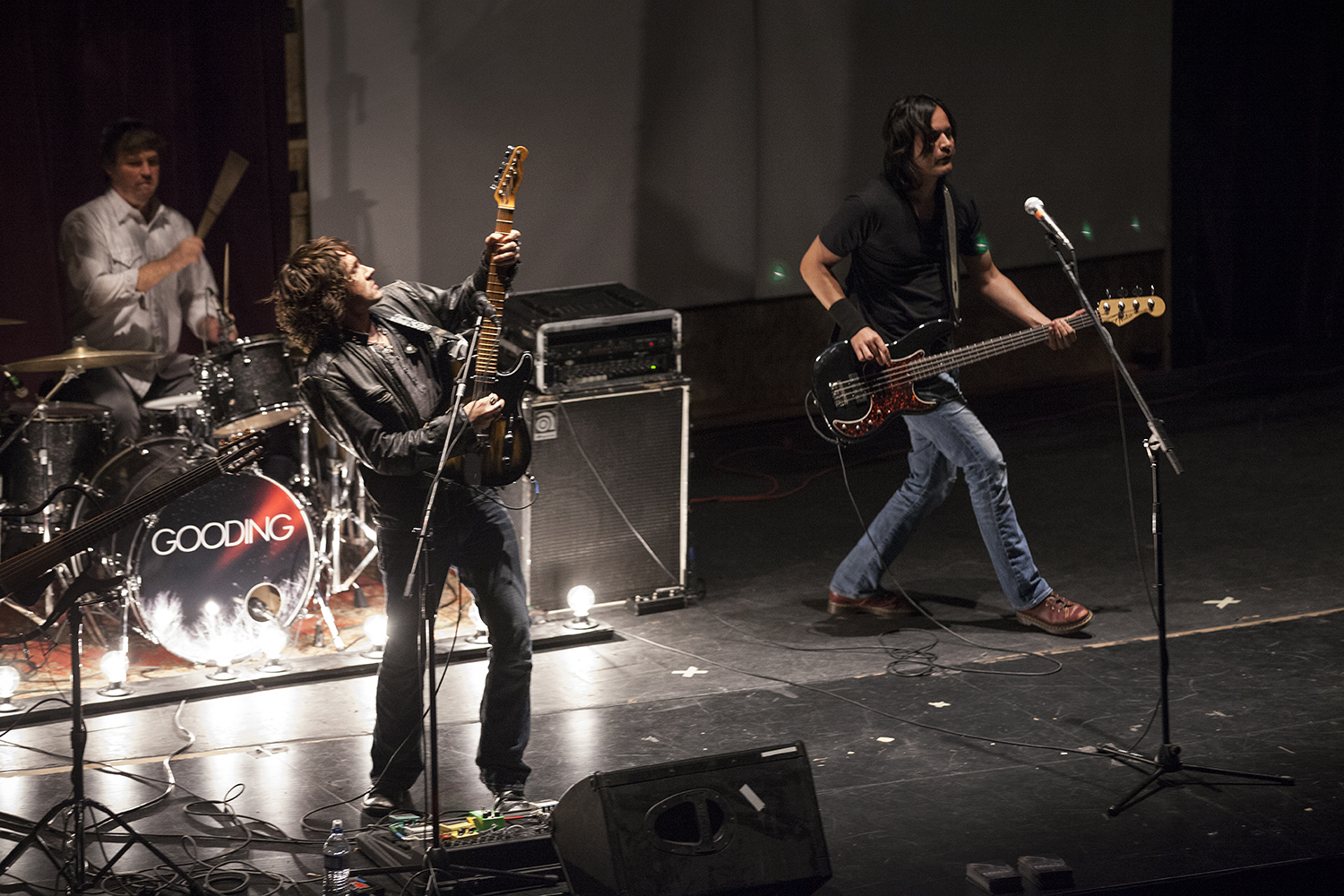 How can we encourage children and young adults to become financially literate?
How can we encourage children and young adults to become financially literate?
Make it rock.
That is where the Los Angeles-based indie rock band Gooding steps in. For a few years, Gooding has combined a blues-rock sound, an electric stage presence, and lessons on financial literacy in tours of shows visiting middle schools, high schools and colleges.
This year, Gooding’s ongoing tour has taken a multi-day jaunt through Philadelphia, with many of its dates sponsored by the Jenkintown, Pa.-based Page Group of Raymond James.
“All generations need to know about financial literacy,” says Danielle Page, senior vice president of investments at the Page Group. “It was something my father, who founded our team, always instilled in us as a family when we were very young: You need to earn money, budget it, and then you have to save. We want to contribute to that for generation after generation.”
While many commentators have called for personal finance to be taught in more American schools, they likely haven’t considered the attention span of the average student, who is ready to forget everything they’ve learned about integral calculus and diagramming sentences as soon as their scholastic career is over.
“Every young adult likes and remembers music,” says Page. “Music stimulates your memory — so using a rock band to activate your memory and click it into financial literacy is a great way for young people to learn.”
The band’s act usually consists of a short 20- to 30-minute set of songs — not necessarily about money — before shifting to speeches about financial planning, which has its frontman performing double-duty as singer and motivational speaker.
“Music makes the medicine go down,” writes the band's lead guitarist and frontman, whose name is also the mononym Gooding. “We are very lucky that since we dress like most of the kids, and since music is a sixth sense that almost everyone enjoys when it is put forth passionately and honestly, the students forget that we are there to tell them something their teachers and many school board want them to understand.”
Gooding’s speaking engagements cover issues like same-day loans, misconceptions about lottery winners, the pitfalls of rock ’n’ roll and professional athlete incomes, self-reliance and the importance of saving early. Throughout the presentation, he shows images of celebrities who went bankrupt after squandering millions of dollars.
“In their early years, the band earned lots of money, but ran through it quickly,” Page says. “They came back and approached their career differently, and wanted to spread the message of financial responsibility. They connected with people like Quincy Jones and others in the business to hone their message, but they’re really telling their own story.”
Students are also taught about the importance of living below their means and the dangers of using a credit card as a rainy day fund. Finally, Gooding extolls the benefits of compounding interest. After a short question-and-answer session, teachers are given a financial literacy curriculum based on the band’s lessons.
“The overall message is that without a basic understanding of finance and some real discipline, the world can get very tough very quicky,” Gooding writes. “I graduated high school with a better understanding of algebra than I did my own checkbook, credit card or FICO score, and I certainly hope students now leave school with a better understanding of financial life than I did.”
Gooding was formed over a decade ago while it’s core members —Gooding, drummer Jesse Rich and bassist Billy Driver — were students at the University of Kansas. Their music has been featured on the Daily Show, CSI and Criminal Minds.
After the band performed as part of Operation Hope, a nonprofit dedicated to teaching financial literacy to underprivileged and disadvantaged communities, Gooding found a calling — teaching children and young adults about financial literacy before the credit card companies and payday lenders came calling.
To that end, Gooding created Funding the Future, a nonprofit that supports its financial literacy tours. In 2014, the band performed for about 13,000 students in a truncated tour. This year, Gooding will visit more than 70 schools nationwide, with many dates in Pennsylvania, Colorado, Florida and California sponsored by Raymond James affiliates.
Next year, Page hopes to have Gooding back performing in Philadelphia-area schools.
“We want to do this year after year,” Page says. “The schools we’ve worked with were very excited to have Gooding perform, and we’re looking forward to bringing them back.”